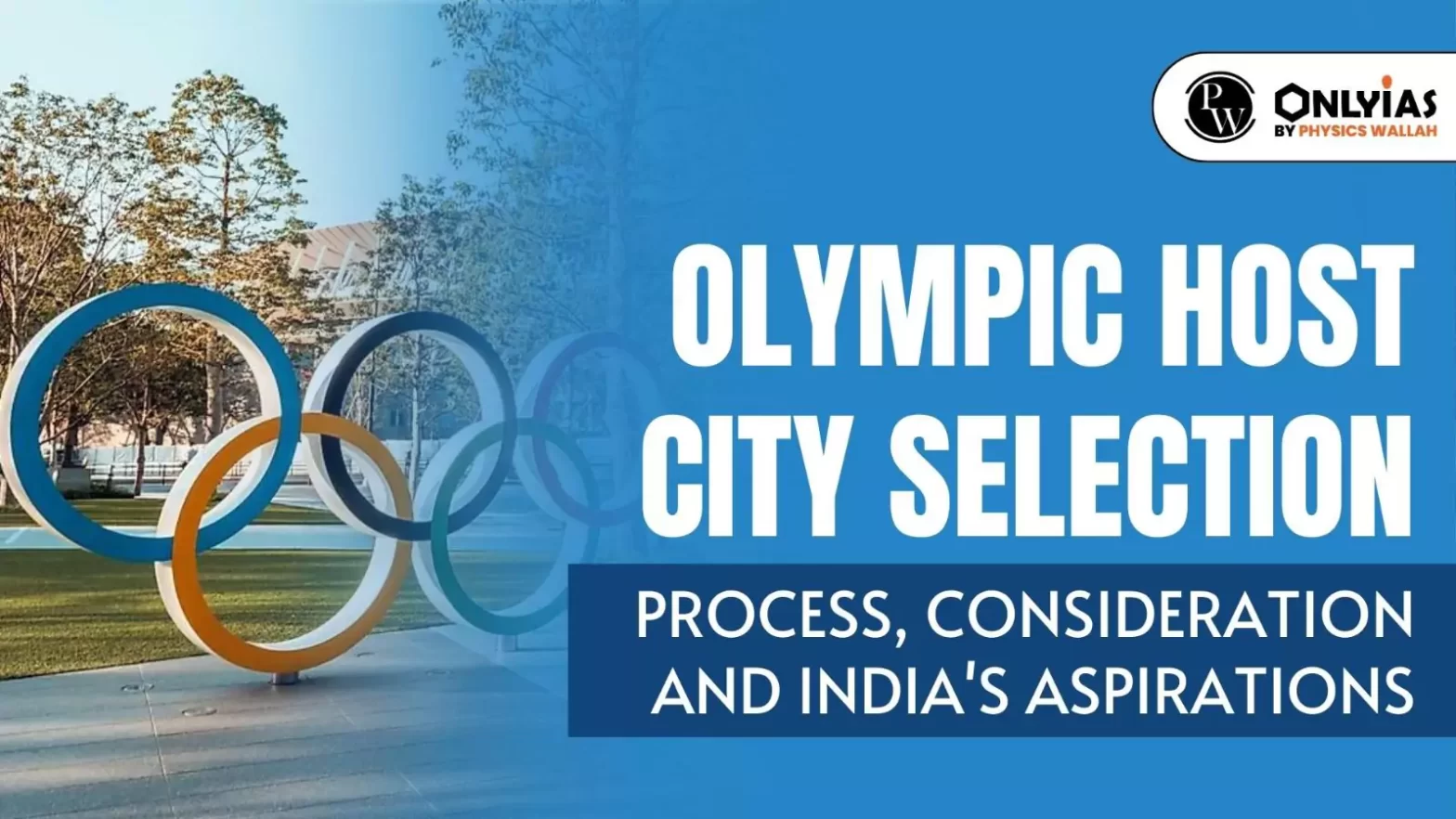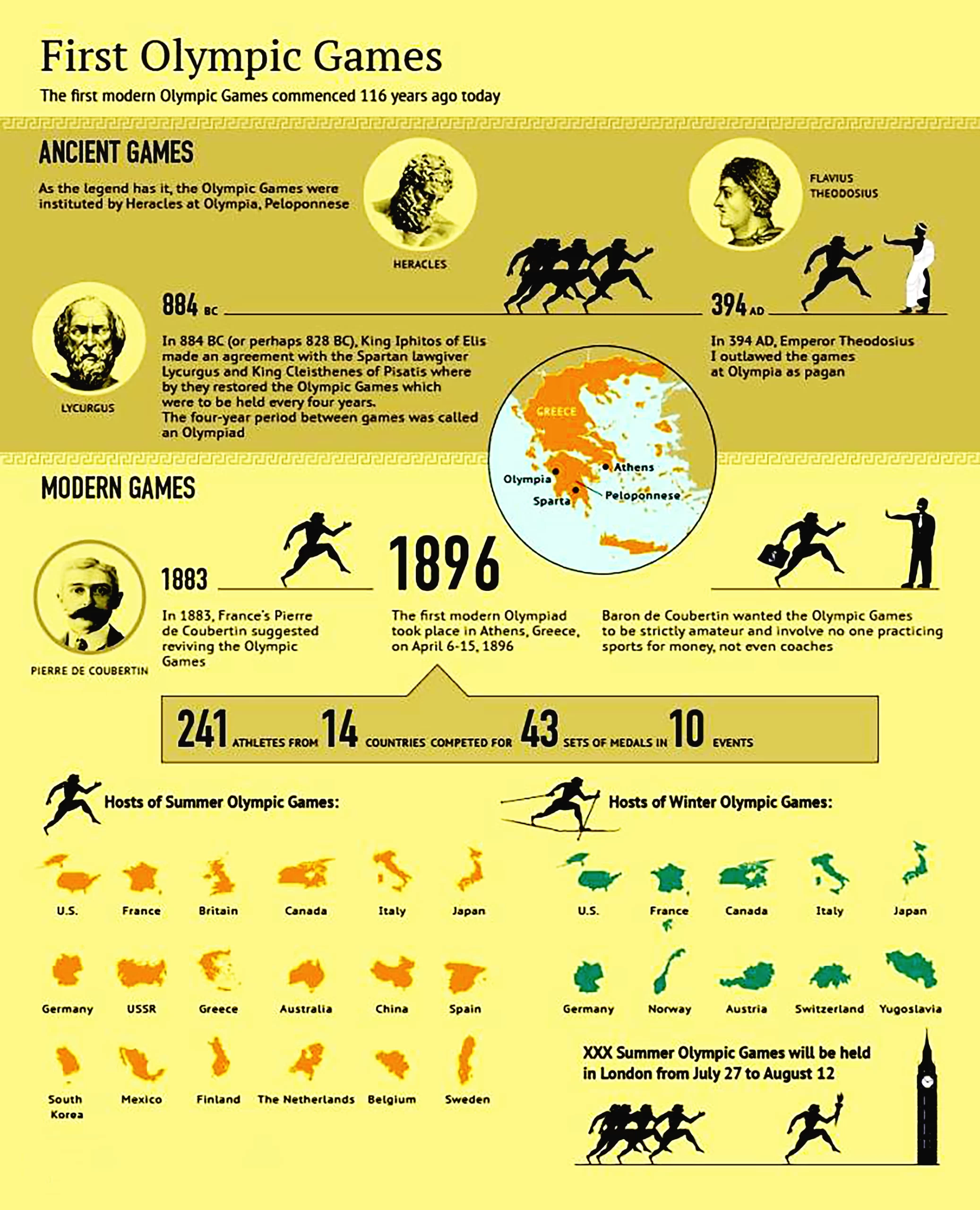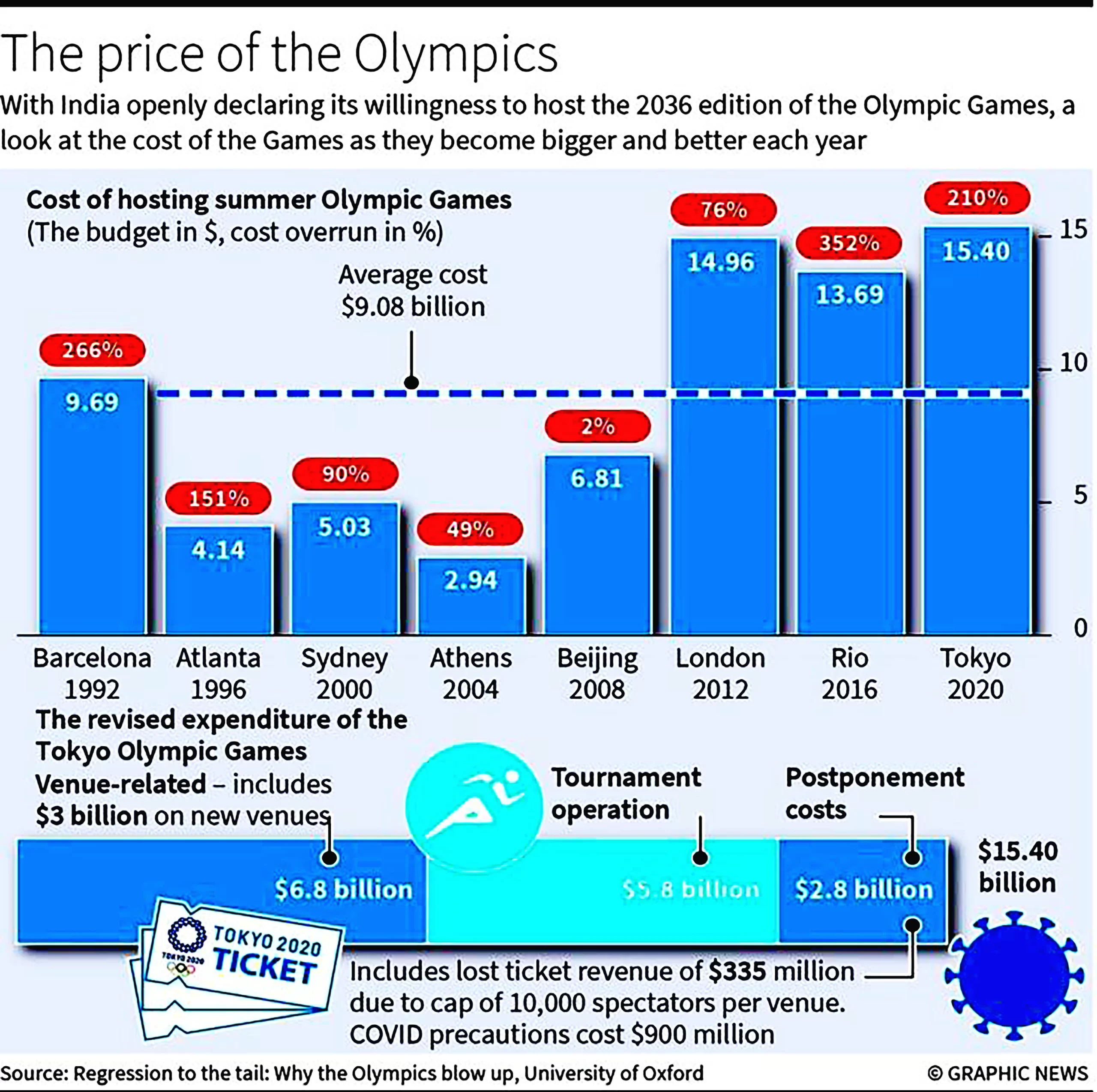Context: The Indian Prime Minister has publicly declared India’s intention to host the Olympic Games in the near future.



Olympic Games need reforms to make them more affordable for the countries hosting them. Sustainability and cost-effectiveness can make them affordable for developing countries as well, thereby allowing the popularity of the event to soar.
| Must Read | |
| NCERT Notes For UPSC | UPSC Daily Current Affairs |
| UPSC Blogs | UPSC Daily Editorials |
| Daily Current Affairs Quiz | Daily Main Answer Writing |
| UPSC Mains Previous Year Papers | UPSC Test Series 2024 |
These Games are the leading sports event featuring summer and winter sports competitions in which thousands of athletes from around the world participate.
The first modern Games were held in Athens in 1896 after Baron Pierre de Coubertin founded the International Olympic Committee (IOC) in 1894.
The next Summer games will be held in Paris in 2024 and 2028 in Los Angeles.
Till now, only China, Japan and South Korea are the Asian countries to ever host the Games. Japan has hosted the games twice.
Beijing is the only city in the world to have hosted both the summer (2008) and winter (2022) Games.
Thomas Bach is the current President of the International Olympics Committee (IOC).
India has expressed interest in hosting the games in the year 2036 during the recent opening ceremony of the 141st International Olympic Committee (IOC) session in Mumbai.
<div class="new-fform">
</div>